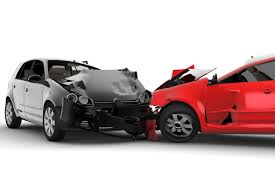
Compensation for traffic accident
In this article we are going to study the different concepts of compensation for traffic accidents, when can we collect when we have a traffic accident?
For some years now, specifically since 1986, a split in the liability regime was introduced. On the one hand, the objective imputation criterion for bodily harm (article 1.2 LRCSVM) and, on the other, the subjective imputation criterion for materials, in reference to the rules of the Civil and Penal Codes (art.1.3 LRCSVM).
By damage to people we understand all types of damage that affects them, whether in their physical or mental sphere (psychophysical or biological damage), or in their property or in their present or future assets, including certain property and material damages. Damages of different nature are mixed, but are subject to the same regime, the quantification of which will be in accordance with the annex to the LRCSVM. Regarding material damages, they would include the rest of the damages not quantified or included above. They will be compensated according to the value of the proven damage.
A joint system called the theory of risk has been created. Thus, the majority of jurisprudence has adopted an intermediate position, consisting of a quasi-objective responsibility without making complete abstraction of the moral or psychological factor and the value judgment on the agent's conduct (ruling, December 20, 1997, Supreme Court). This theory was mitigating the objective liability required for personal injuries while objectifying the responsibility of article 1902 CC, giving rise to quasi-objective liability.
The apparent objective responsibility of art. 1.2 LRCSVM was limited by the causes of exoneration of liability, such as force extraneous to driving, excluding engine malfunctions, and the exclusive fault of the victim. Among the cases of force majeure, natural disasters, tumult or events caused by unforeseeable third parties stand out, which are configured as causes external to the circulatory sphere, excluding engine operating defects.
Material damages, on the other hand, were objectified by jurisprudence, mitigating the requirements of attributing guilt for the agent's declaration of responsibility. It was enough that the accident was caused by a motor vehicle, due to the violation of due diligence in traffic and that the person was the cause of the damage. However, said objectification does not completely dispense with the element of guilt, limiting liability in the case of traffic accidents due to vehicle collisions and the exclusive fault of the victim, where such reversal of the burden of proof would not operate.
Law 122/1962 introduced Compulsory Accident Insurance (hereinafter, SOA), configuring it as civil liability, compulsory and content insurance imposed by law. It only covers damage to third parties (article 5 LRCSVM), which are those people outside the insurance contract.
This insurance guarantees liability coverage for vehicles parked in Spain, through the payment of a single premium, and throughout the territory of the European Economic Area. The art. 2.1 LRCSVM imposes on all motor vehicle owners who are parked in Spain the obligation to sign and maintain an insurance contract in force for each vehicle they own.
The amount of coverage of the SOA is 70 million euros per incident in damages to people, regardless of the number of victims (including the concepts of art. 10.2 RRCSVM), whose amounts will be determined according to the scale in the annex. For damage to property, the maximum amount of coverage is 15 million euros per incident, which includes all property not considered personal.
When there is damage to people and property and the compensation for the latter exceeds the amount, the difference will be compensated with the remainder of the damage to people, reaching the limit of 70 million euros (art. 10.1 Regulation).
When these amounts are exceeded, the subsidiarity of voluntary insurance would come into play. Finally, mention that the Insurance Compensation Consortium will act in a subsidiary and guarantor manner when the SOA does not operate (ruling, June 7, 2005, Provincial Court of Seville).
